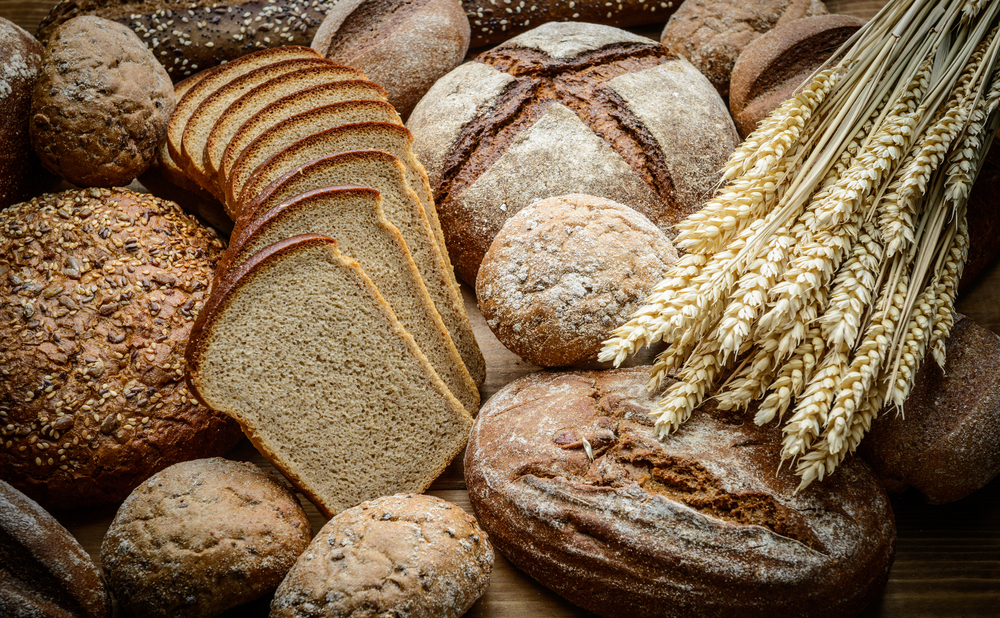Massachusetts General Hospital researcher Andrew Chan, MD, MPH, and his team study the role of diet and lifestyle in preventing chronic disease.
Dr. Chan’s research is making a difference for colorectal cancer patients.
Dr. Chan’s research is making a difference for colorectal cancer patients. His recent study that links eating whole grains to an improved survival rate made headlines. And it gave patients advice for improving their health.
But his research does not always attract large sources of funding because he investigates improvements that can be made through diet or inexpensive drugs, like aspirin, which is already on the market.
Supporting Research
To ensure that Dr. Chan and other scientists can move forward with their groundbreaking studies, Mass General created the MGH Research Scholars program in 2011. The program supports early career researchers for five years with flexible funding. It is fully reliant on philanthropy.

Dr. Chan was named a Stuart and Suzanne Steele MGH Research Scholar in 2017. With this support, he will continue investigating whether aspirin use increases bacteria in the human gut and might suppress the risk of colorectal cancer.
The MGH Research Scholar funds will enable Dr. Chan to enroll more patients and collect specimens, both which are necessary for building a solid study.
Since the 50 MGH Research Scholar awards have been bestowed, this group of scientists has secured an additional $292 million in grant funding, created 10 start-up companies and published more than 1,400 scientific papers.
Deciphering Colorectal Cancer’s Origin
Colorectal cancer is the third-most common cause of cancer-related death in the United States. Physicians recommend colonoscopies to screen for it beginning at age 50. But new data shows sharp rises in rates of younger and middle-age adults being diagnosed with the disease.
“The gap in the field is: Does diet play a role? And, if so, how does it work?”
Researchers are turning their attention to the Western diet and its effect over time on our bodies.
Dr. Chan, chief of the Clinical and Translational Epidemiology Unit at Mass General, says his colorectal cancer patients often ask him if there is anything they can eat to keep their cancer from returning.
Unfortunately, research to date has yet to provide clear answers. “The gap in the field is: Does diet play a role? And, if so, how does it work?” Dr. Chan says. “If we can understand those mechanisms, we can identify other ways to fight cancer.”
Cereal Fiber Impact
Inspired by patients’ questions, Dr. Chan and his team analyzed data from 1,575 adults diagnosed with colorectal cancer, but whose disease had not spread. Patients completed surveys sharing what they ate, their lifestyle choices and medical histories.
Each additional 5 grams of fiber consumed was linked to a 22-percent lower risk of death from colorectal cancer.
“We found the individuals who had the highest intake of (whole grain) cereal fiber, tended to do the best with the highest survival rates from colorectal cancer,” Dr. Chan explains.
Previous research had suggested consuming a high-fiber diet reduced the chances of developing colorectal cancer. But Dr. Chan wanted to study the effect post-diagnosis.
His conclusion: Starting off with a high-fiber diet prior to a diagnosis gave patients the best chance of survival from colorectal cancer, but adding more fiber, post-diagnosis, helped, too.
A high-fiber diet, especially those abundant in whole grains, was associated with lower mortality. Each additional 5 grams of fiber was linked to a 22-percent lower risk of death from colorectal cancer and a 14-percent lower risk of death from all causes. Patients who changed their diet to include more whole grains after a colorectal cancer diagnosis lowered their risk of death from the disease by 18 percent for every additional 5 grams of fiber they added.

Why Fiber?
There are several theories about why fiber has such an impact. Dr. Chan says whole grains may balance the body’s insulin levels. Researchers theorize eating too many carbohydrates causes these levels to spike, and could spur the growth of cancer.
Another theory suggests gut bacteria may break down fiber into specific by-products that have an anti-cancer effect when breaking down fiber. On the other hand, fiber may also promote the livelihood of certain naturally occurring gut bacteria that may protect against cancer. Other scientists also suggest that eating more fiber can reduce obesity and weight gain, which are both risk factors for colorectal cancer.
Research has also linked a high-fiber diet to a lower risk of cardiovascular disease.
Choosing High-Fiber Foods
Dr. Chan knows consuming more fiber can be difficult.
“It’s not always palatable,” he says, adding that some people also experience bloating and gas.
But most people can eat more cereal grains. It can be as simple as opting for higher-fiber options throughout your day, like whole-grain bread for your sandwich, he says.
Where can I find whole grains?
- Look for the words “whole grain” or “whole wheat” on ingredient lists.
- Try popcorn, oatmeal, brown rice and bulgur, which are naturally whole grains.
- Read the package. Made with “100-percent wheat,” “multigrain” and “bran” are not whole grains.
Source: USDA
To learn more about the MGH Research Scholars program or to make a donation to support the program, please contact us.





